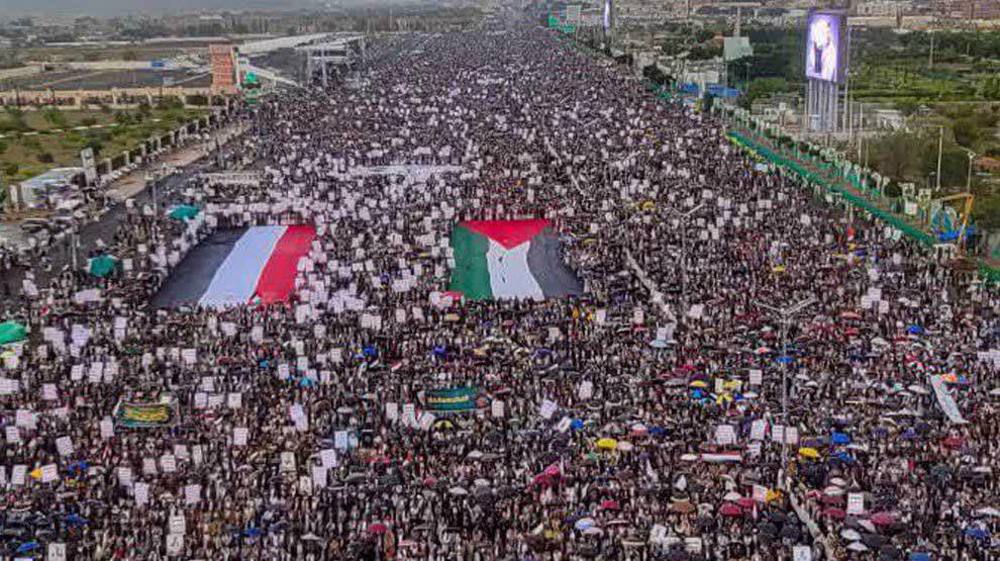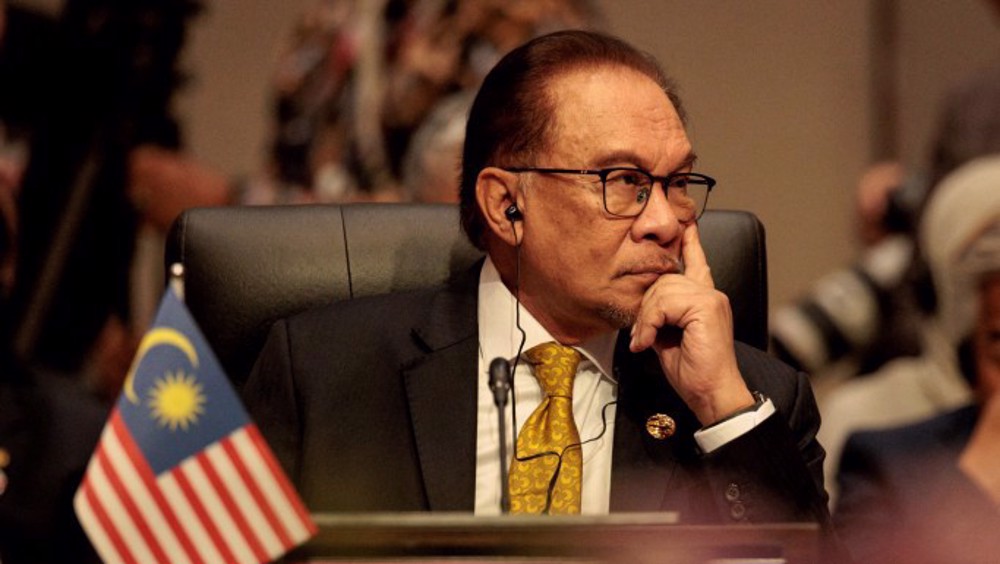Refugees in ‘absolutely devastating’ conditions in Nauru
International medical charity Doctors without Borders has described as “absolutely devastating” the mental health conditions of the refugees detained indefinitely by the Australian government on the tiny Pacific island of Nauru.
“The mental health conditions of asylum seekers and refugees trapped on Nauru is absolutely devastating. Five years of indefinite limbo has led to a radical deterioration of their mental health and wellbeing,” the group’s Australia Executive Director Paul McPhun said at a news conference in Sydney on Thursday.
Nauru is one of two Pacific nations where Australia detains hundreds of asylum seekers intercepted while trying to reach the country by boat.
“Over the past 11 months, MSF teams have treated dozens of men, women, and children trapped in the vicious downward spiral of despair,” McPhun said, using a French acronym for Doctors without Borders. “Shockingly, of the refugee patients we treated, at least 78 had attempted suicide, had suicidal thoughts, and inflicted self-harm, and they are conservative numbers.”
‘Children in semi-comatose state’
McPhun stressed that the Australian government’s policy of indefinite detention of refugees offshore had “destroyed their resilience, shattered all hope, and ultimately impacted their mental health.”
He also said “depression, anxiety and Post-Traumatic Stress Disorder” were the conditions most seen among the refugees, adding that many children existed in a “semi-comatose state that makes them unable to eat, drink and talk.”
McPhun said during the news conference that the only solution to the unfolding mental health crisis was the “immediate evacuation” of the refugees.
“Separating families, holding men, women and children on a remote island indefinitely with no hope of protection except in the case of a medical emergency, is cruel and inhumane,” he concluded.
Last week, government officials at Nauru forced MSF to leave the island, where it had been working since November 2017 by providing psychological and psychiatric services to refugees, asylum seekers, and local Nauruans.

Australia has been widely criticized by the international community and human rights advocates for sending those asylum seekers who try to reach its shores by boat to Canberra-funded detention camps on Nauru and Papua New Guinea.
The United Nations (UN) Human Rights Committee has on several occasions expressed concern about the refugees’ physical and mental well-being on Nauru, citing instances of assault, sexual abuse, self-harm, and suspicious deaths.
Conditions in another facility formerly-run by the Australian government but not abandoned — on Papua New Guinea’s Manus Island — have also been criticized by the UN and human rights groups.
The Australian government has stopped publishing data on the number of refugees held in the centers. Refugee advocates estimate 600 people are detained on Manus and a further 500 on Nauru.
Last October, asylum seekers at Manus said the camp officials exited the Australian-funded facility and abandoned all the refugees there after a Papua New Guinea court had declared the camp illegal. While the PNG government said Australia were responsible for the fate of the detainees, Australian officials took no action to resettle the individuals, and security guards just left.
Know their names: Palestinian athletes, scouts, coaches killed by Israel in Gaza
'It was not a strike': Iran FM dismisses Israeli weapons as 'children toys'
The struggles of Occupied Palestine
Saadi Day: Ayatollah Khamenei exalts great Persian poet
Iran’s Civil Defense examines country’s preparation for potential threats
FBI chief: Chinese hackers targeting critical US infrastructure
New York Times leaked memo on Gaza coverage reveals obfuscation of facts
VIDEO | Press TV's news headlines









 This makes it easy to access the Press TV website
This makes it easy to access the Press TV website